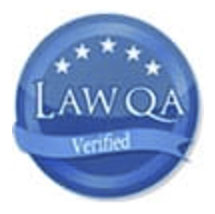It should also be noted that, while alcohol is the most common intoxicant, a DUI charge can be given for impaired driving due to other chemicals as well. The severity of a DUI charge depends in large part on the specific circumstances of the incident. Punishments become more intense depending on the blood alcohol content (BAC), previous charges, and the driver’s behavior while intoxicated.
The legal BAC limit for an adult is .08%. If you are a commercial driver, the limit is .04%. After a DUI conviction, an Ignition Interlock Device (IID) may be installed in your vehicle and you will most likely be responsible for the cost. This device measures your BAC before it will allow you to start your car. If your BAC is above the set limit, it will not allow you to start your vehicle. An IID may be installed after the second conviction.
First conviction
· Not more than 6 months of jail time
· A fine of up to $1,000
· License suspended for between 90 and 180 days
Second conviction
· Between 10 day and 1 year of jail time
· A fine of up to $2000
· License suspended for up to a year
· Installation of a Ignition Interlock Device
Third conviction
· Between 30 days and 5 years of jail time
· A fine of up to $5,000
· License suspended for between 1 and 5 years
· Installation of an Ignition Interlock Device
· Considered a felony
Under 21
If you are under 21 years of age, you can be charged with a DUI if your BAC is .02% or above. You will also be charged a fine of $1,000 and your license will be suspended for 1 year. If the driver is a minor, they will love their license until they turn 21.
DUI charges are very serious matters. The state of Idaho has its rules and regulations regarding DUIs available online, but if have additional questions or you find yourself in a situation where you are potentially facing a DUI charge, it is highly suggested that you seek the services of an experienced and knowledgeable legal professional. The will be able to assist you and help you to make the best of the situation.




